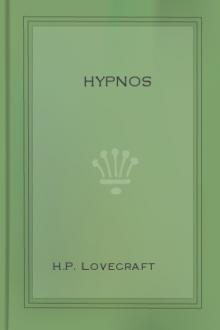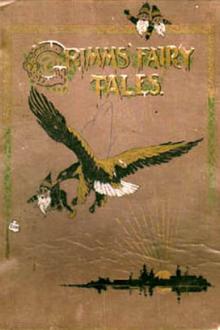Violet Ink - Ramisa R (books you have to read .txt) 📗

- Author: Ramisa R
Book online «Violet Ink - Ramisa R (books you have to read .txt) 📗». Author Ramisa R
He smiles. “Wouldn’t mention it if I didn’t.”
I hold out my hand, almost comically. He shakes it regardless of my wordless mocking.
Chapter EightIn front of me stands a giant house, at least several metres tall with endless storeys and flashing windows. Sunlight captures every aspect of the broken, ragged building, making it beautiful in a vintage perspective. Yet, I can’t see why Flynn is so desperate to keep this ruined house; change is always uncomfortable, but not to the extent where I’d sacrifice happiness for this pile of bricks.
But I’m smart enough not to question this. If I do, he may realise the obvious mistake he’s making, and call off our deal. Going another day without knowing about my past will drive me insane.
Broken memories. Familiar strangers. Words that make no sense but soon will. This is everything Flynn can provide me; the key to my past, an inevitable one. Without his source of information, I am lost. I’ll be roaming the streets blindly, telling my problems to scornful strangers and frightened acquaintances.
I need closure. And I need it now. No matter the consequences, the possible precarious events about to happen, I will recover my unattainable past.
“Nice house.”
He stands beside me, grinning. A scar reaches from the tip of his left eye to the beginning of his lip –it extends with the movement. “Nice lie.”
I step into the dark building, ignoring his swift recognition of my fib. Sometimes, I foolishly forget who he is. Flynn Mason, son of a policeman father and psychologist mother. He’s born for this kind of personality; the kind of mind which allows him to understand human intentions greater than anyone else.
In every bookshelf –and there are a lot of them, just in the living room alone– there are at least twenty books. Analysis of the human mind, essays on criminal investigations and factual information regarding contemporary cases. Even if his parents work all day, there are enough resources around the house to intrigue knowledge of the world surrounding him.
“So, when will they be here?” I ask.
He glances at his watch. “In ‘bout five.” There’s a knock on the door. “Or now.”
We open the door. A family of three await us, with a blonde mother with an upturned nose, a father with slightly bent ears and a child, cradled to its mother’s chest. They shoot us warm smiles. Whatever we return doesn’t offer the same warmth, and their eyes cloud with suspicion.
“Come on in,” I say, gesturing to the living room. “Hi, I’m Theresa.”
The eyebrows of the husband knit together. “Theresa? But we’ve been talking to a woman called Mirabelle–”
“Oh, yeah,” Flynn says quickly, “about her. She got called on duty for something –you know how it is for psychologists, don’t ya? Well, this is Theresa –she’s my sister.”
They glance at me from head to toe, turning to do the same with Flynn. It’s evident in their stern gazes alone that they don’t believe we’re siblings –which is acceptable, as their suspicions are completely and utterly correct. I continue smiling, feeling my lips falter every second. Without them, the deal will be off.
“It’s a lovely house,” the woman says, glancing at her surroundings. “It’ll be good for Edward here.” She gently pats her son’s hair. Then turns to her husband. They share such a personal moment, I feel sick.
It’s time it disappears. For good.
“This way, please,” I say, directing them upstairs. “Careful, don’t touch the banisters. The last owner of the house slipped and fell, hitting their head on that rail. They had cold sores –like, a lot of them– and some of the germs might be left over.” I sneak a look at the family, praying they don’t have enough medical knowledge to work out cold sores are only contagious from the person themselves. Judging by their widened eyes and distance from the handle, I have estimated correctly. “We’re on the second floor now.”
I gesture to a stained-glass window. “There’s a story behind it. The last owners of this house painted that for his wife, but she died the night before. Now he lives in this mansion, roaming the hallways.” I laugh at their uncomfortable smiles. “C’mon, don’t tell me you believe that. It’s just a story.”
“Yeah,” the woman echoes. “Just a story.”
“Over here,” I say, pointing to a bedroom with wall-sized mirrors and windows near the ceiling of the rooms. It is impossible for one to stare out of the room without standing. “This is my favourite room of the house. These mirrors didn’t used to be there, did you know? But after an incident, they got put here.”
Flynn catches on, and says the most generic comment applicable to the situation, “It was tragic, wasn’t it?”
“It was.” I sigh. “On this floor, in this very room, a girl was soundly asleep. Back then, the bed was right underneath the window. She was staring up at the ceiling, unable to fall asleep. Then, suddenly, she heard a scratching sound. And there he was, a masked figure who smashed the window. He had a gag with him. She suffocated to death.”
This time, though, their eyes are wary. All this time, they’ve been following along with whatever I said. But now, they are holding their own questions in their head.
The father speaks up. “I don’t understand. You want to sell this house, and we want to buy this. Why would you say anything that hurts your profit?”
Good question; a surprising one, even. Guess I underestimated both this couple and two-year-old son, who’s now awake and watching with curious eyes. He sucks on his thumb.
“You’re right. I don’t want to sell this house.” I meet their eyes. “My sister lives here, and I can’t bear the thought of selling her home.”
“You mean the girl who was murdered…”
“Was my sister. And I wish it was a lie. Or a myth. Or something else but the reality I suffer through every day.”
We stare at each other. Sweat forms on the mother’s face. The father clutches at her hand, and with a tight-lipped smile, says, “Thank you for showing us ‘round. We, uh, have other houses to inspect so we should better get going.”
They race down the stairs before I can blink, careful to avoid the banisters with the supposed contagious germs. The mother grips on the child, and the father dashes out the door. Neither of them turn back. But the young boy does, still suckling on his thumb, and giving me an innocent door before the door shuts in front.
“That was…” Flynn begins. “That was brilliant.”
“I know.”
“But I don’t get how they fell for it. They looked like intellectuals to me–”
“Were we looking at the same people?” I smile. “Actually, yeah –I see where you’re coming from. Their outfits were smart, the baby was in a simple, comfortable cloth and the husband wore glasses. But did you notice the woman’s necklace?”
“The baby was blocking it the whole time.”
“Not the whole time. Just some of it. And on that necklace were little gold-plated charms; a four-leaved clover, a grey rabbit’s foot, a couple of horseshoes and mini lanterns. My friend, Lilah, lives at a farm. Her father is a blacksmith and it looked exactly like the metal he carves. That metal’s expensive, and so is her necklace.”
Lilah’s father was extremely passionate about metal. Once, I went over to their house and spent the entire day hanging around her father’s workshop. The works he crafted looked too perfect, too professional, to be created by human hands alone. But they were. Each and every artwork was another addition to his gallery.
Very soon, after endless questions and marvelling sighs, we learned about all the metals he surrounds himself with –especially gold, his favourite. It’s strange to think this happened so long ago. Another past, almost.
“So you figured out she was superstitious by looking at her accessories.”
“Superstitious to an extreme level, if she’s to go as far as making a gold necklace out of it.”
“How’d you know the father was superstitious as well?”
“I didn’t.”
He looks surprised. “And you did it anyway? Even though he might’ve seen through it?”
“I knew he’d react this way. That wasn’t due to being superstitious, but being a parent. As any parent, he feels as if he’s responsible for his family. Choosing a home that might endanger them is a big no. So he went along with it. He didn’t feel safe here.”
“Of course,” he says under his breath. “Masculinity psychology.” Then he fishes something out of his pocket. “This is a key for a locker belonging to a toddler Theresa Hawthorne.” As soon as I step to grab it, he twists it away from me. With a sly grin, he says, “How do you know I’ll give it to you?”
“We had a deal.”
“Deals mean nothing.”
He screams as I shove him to the ground. My leather boots, equipped with four-inch heels to appear professional for the inspection, serve another purpose. The heel of my left boot stabs into his shoulder blade. Struggling in his spot, he stares up at me with flashing eyes. Fear.
“I’ll take that, thank you,” I say, swiping the keys from his immobile fingers. Before I begin racing down the stairs, I can’t resist calling an ironic, “Have a nice day!” and then barge open the door, leaving Flynn and his giant mansion to rot.
When I next glance at my right elbow during this moment of pure adrenaline, I perceive a vague violet tint; it’s barely noticeable, but undeniably there.
*
There’s a small tag attached to the single key; a number reading “Locker 2” in scrawled, tiny handwriting. An additional piece of paper reads an address. My hand freezes when I notice it’s not any address, but belonging to my own house. The concept of Flynn knowing where I live, let alone a key to a secret compartment, scares me beyond words.
These aren’t my parents. Annie is not my sister. Maybe I should’ve noticed a long time ago, but I never felt different until now. Suddenly, I feel like I’m a little strange in comparison to the happy, joking lives of those around me. Weak. They are weak human beings, hurt by little comments and bad grades. Is this all there is to life? Watching them meander around without a life of my own?
“Oh, you’re home,” says Annie, seeing me enter the living room.
I flash her a quick smile. “Yeah. Been out for a while.”
“Has life been treating you well, Tessa?” She leans against the sofa, her eyes shut. In front of her is a glass of water. Ever since she found out water has virtually no calories, she has given up food. “I got a phone call from Mr Sanatori. He says I have an appointment with him on Monday. Funny, because I was never told.”
“Annie, we’re only doing what’s best for you.”
“I am not a mental patient. So why are you treating me like one?”
Just as I’m about to return the indignantly in her voice with a hurtful remark, I am halted by the tears flowing down her cheeks. Little droplets of water streaking her thinned, hollow face.
“Sorry,” I say, heading to the garage and closing the door behind me. Annie’s problems can wait; I have enough of my own.
Behind the garage is a storage room with





Comments (0)